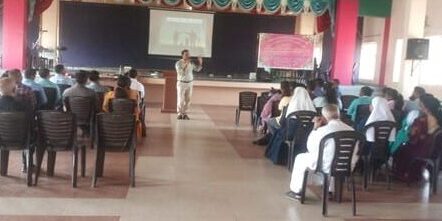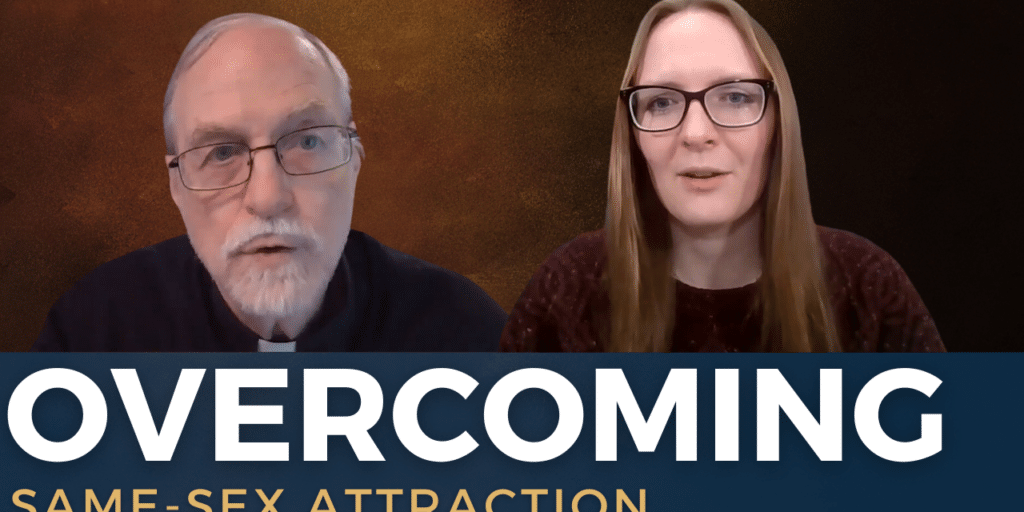The HLI Rome Library is Bringing the Faith to Students, Lay and Religious
The HLI Rome Library, which is celebrating its 36th year, holds more than 7,600 volumes, many magazines, and digital resources. This library is unique as it is strictly pro-life and pro-family, specializing in topics related to the culture of life and family issues. These issues range from abortion, euthanasia, and contraception to transhumanism, marriage, artificial fertilization, gender ideology, and more.
The library also houses large sections in theology, the Magisterium, philosophy, Thomism, and moral philosophy, holding many volumes that are now out-of-market. With a friendly atmosphere and family environment, the library allows for students and religious to broaden their understanding of Catholic teaching and pro-life issues. It even offers students guidance on writing their papers and theses.
One priest that used resources from the HLI Rome Library to write his thesis was Fr. Samuel Velásquez Serrano from Puerto Rico. His first experience with the library was in 2011 when he was a university student. He was looking for books to help support his thesis in moral theology, specifically regarding how abortion is an intrinsic evil and reviewing how much it damages women and families. Over his years as a priest, he has accompanied more and more women who have suffered greatly from the evil of abortion and who seek healing and hope.
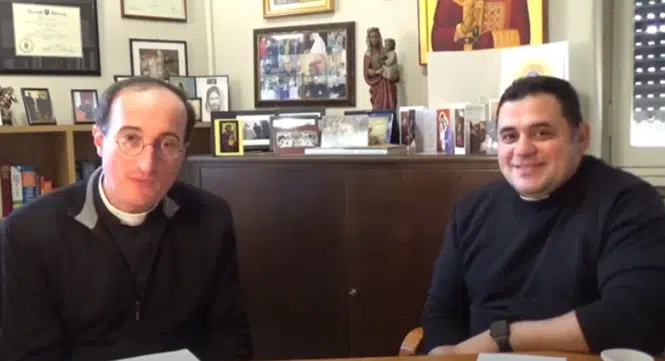
Father Giordano (left) and Father Velásquez Serrano (right)
Using the HLI Rome Library’s materials as resources, Fr. Samuel outlined how life is a sacred gift and a mystery. It is in life that God makes man a participant in this mystery through parenthood. Fr. Samuel explains that life is always a gift, even when the circumstances of one’s conception were bad, such as through rape.
However, the culture of death states that those who are unborn, comatose, or mentally handicapped are not really “persons” and thus can be “disposed of” in a way unbecoming to a human being. This could not be farther from the truth. Human beings have intrinsic dignity, which demands respect at all stages in life and in all circumstances. Meanwhile, the culture of death touts freedom, alleging that one has the freedom to do whatever they want.
Fr. Samuel goes on to describe abortion procedures and the reality of post-abortion syndrome, outlining the damage abortion does not only to the child, but also to the whole family. If not addressed, this damage can cause severe psychological issues. He then outlines how to heal from post-abortion syndrome. First, one must face their pain and recognize the evil of abortion. Then, one must reconcile with God in the sacrament of confession, and one must reconcile with one’s neighbor, primarily their family. Reconciling with family can be a long process that requires acknowledging the truth and the goal of reconciliation with all members. The final step requires healing spiritually through the sacraments, which can only be done by God’s grace.
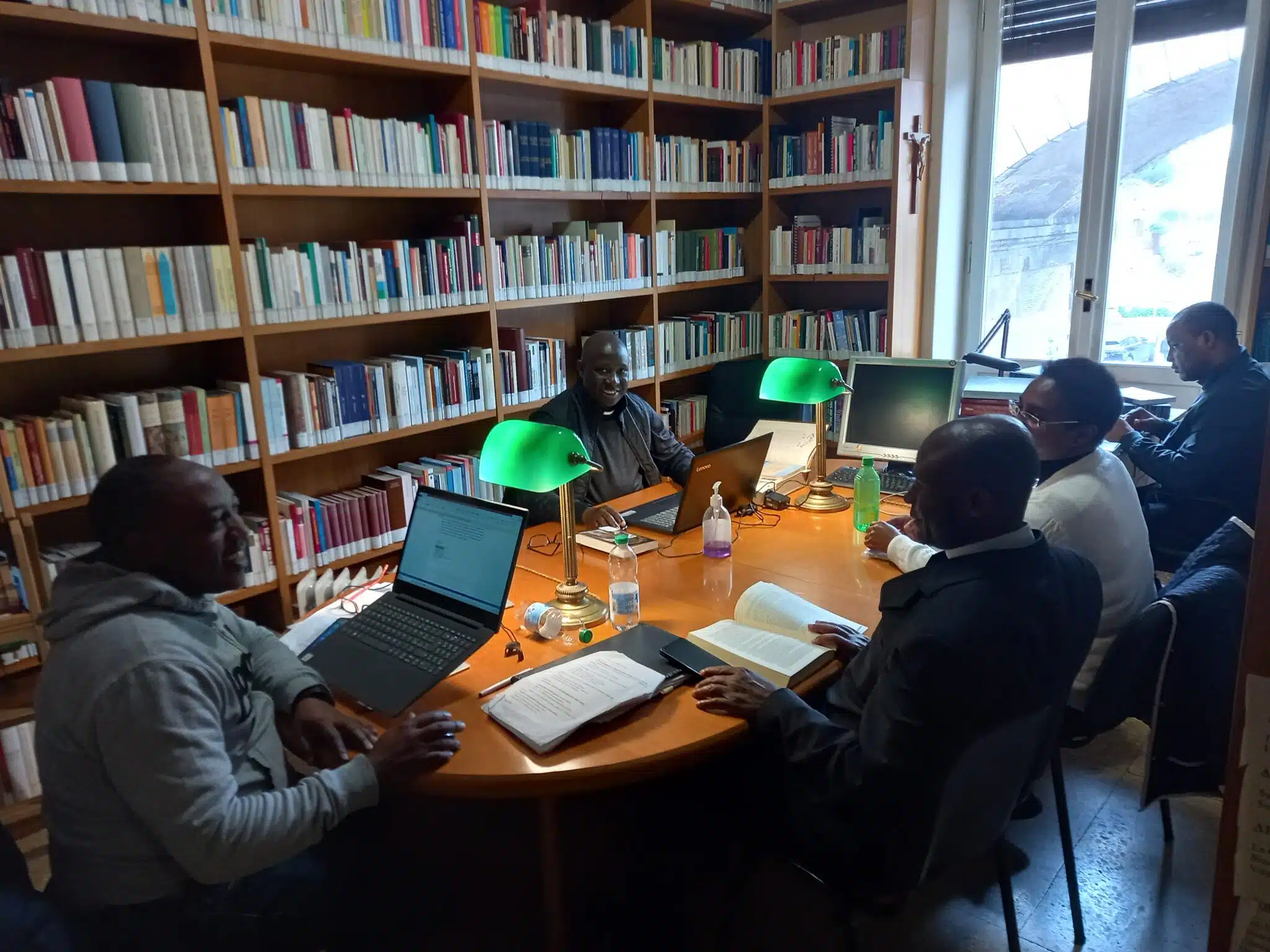
Studying at the HLI Rome Library
Fr. Samuel summarizes beautifully:
We speak of freedom as an intimate and personal value that society must protect and respect; but at the same time, the same word is used in contradictory ways to coerce the freedom of an innocent person who must be protected. The big commercial abortion chains are only concerned with marketing abortion as a woman’s ‘freedom and self-determination’, worrying about her before and during the abortion, but then what? […]
I conclude with a question that concerns me: what should I do in favor of the Gospel of life? From my reality as a young priest and student, what should I do for so many men and women in need of reconciliation and healing? God has given me this ministry of mercy and reconciliation, the least I can do in honesty is to put myself at the service of hope, be a sign of eloquent prudence and be oil and wine in the hands of the Lord who is healing so many wounds.
Fr. Samuel’s work of compassion, created with the help of HLI’s library, is an eloquent example of the heart of the culture of life, which seeks healing, peace, and joy.
And Fr. Samuel is not the only priest who speaks of the library’s benefits.
Fr. Giordano uses the library’s resources to enrich his lessons at the Pontifical University of St. Thomas Aquinas and the Catholic University of America Rome Program. In an interview about the library, Fr. Giordano spoke about HLI’s founder, Fr. Paul Marx.
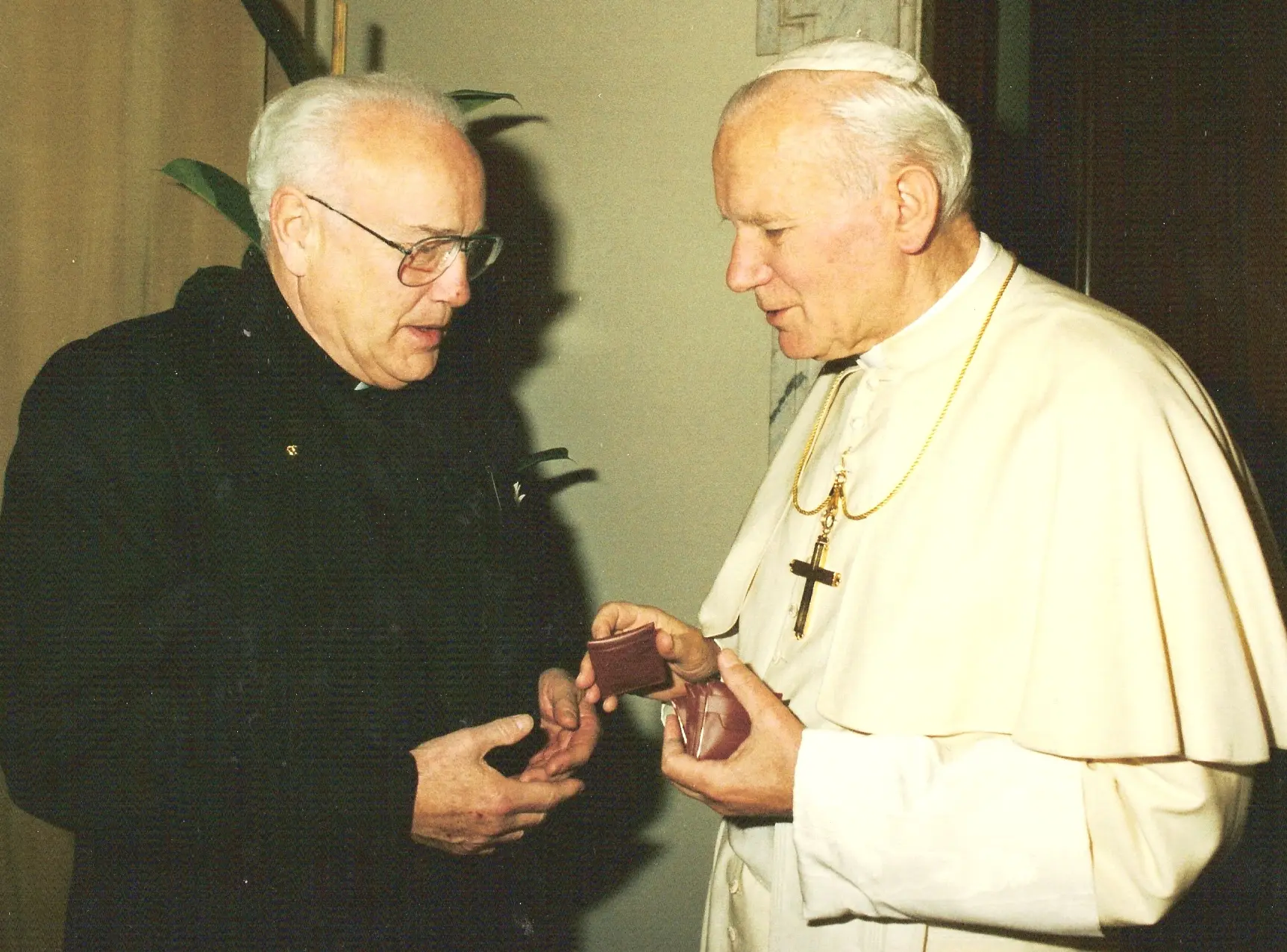
Fr. Paul Marx, HLI’s founder, and Pope St. John Paul II
In 1979, Fr. Marx spoke with Pope St. John Paul II about the issues surrounding human life, such as contraception, cohabitation, abortion, euthanasia, and a decreased birthrate. JPII paused, seemingly praying, then responded: “You have a lot of experience. You need to take this pro-life and pro-family movement to the whole world. If you do that, you will lead the most important work in the world.” Two years later, in 1981, Fr. Marx would establish HLI.
Through the Rome Library, HLI seeks to make these pro-life and pro-family resources all the more accessible to the world, carrying out the wish of JPII. Thanks to the prayers of HLI’s supporters and our donors and benefactors, the HLI Rome Library is an invaluable resource for Catholic students, religious, and lay professionals who wish to deepen their faith and understanding.
Marisa Cantu has an MS in political science and international affairs with a BA in political science and has also studied international studies and French. She has a strong background in nonprofit work, research, writing, and policy proposal and analysis.
In her free time, Marisa enjoys painting, writing, cooking, spending time with her husband and playing with her dog.




